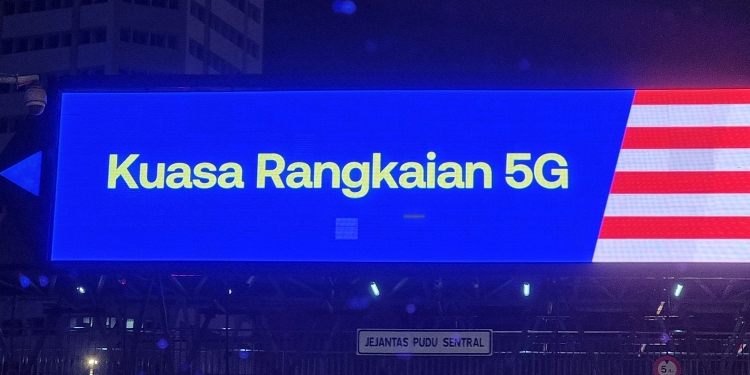Malaysia’s 5G network that’s currently deployed by Digital Nasional Berhad (DNB) has recorded a decline in performance in the past year as revealed by Opensignal’s latest global 5G experience report released last month. In the previous Opensignal June 2022 report, Malaysia was ranked #2 for 5G download speeds and #1 for 5G upload. According to Opensignal’s latest June 2023 report, Malaysia is now ranked #4 for downloads behind Brazil, Singapore and South Korea, and #3 for uploads behind Guatemala and South Korea.
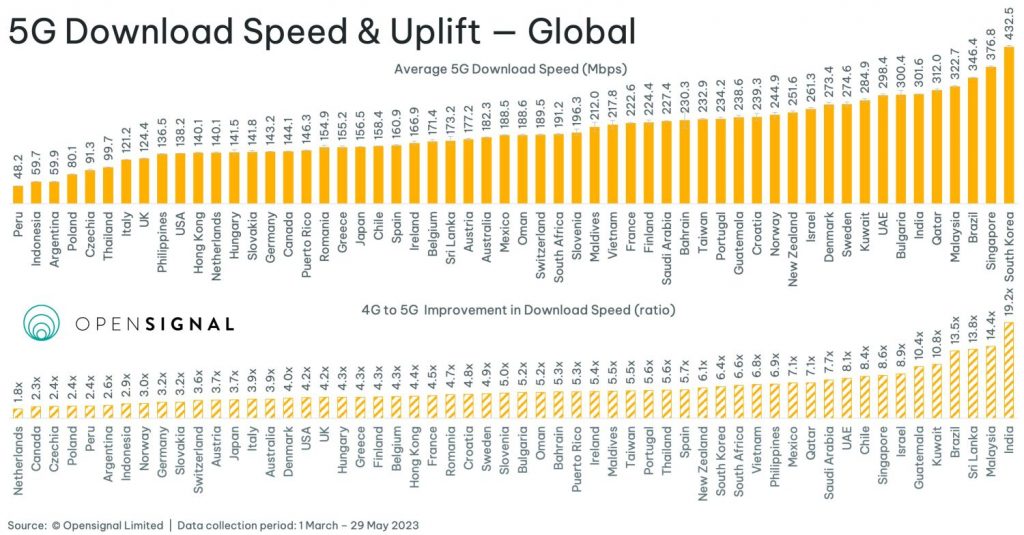
Based on pure numbers reported by Opensignal, Malaysia’s 5G download speed has declined from 382.2Mbps to 322.7Mbps year-on-year. Meanwhile, 5G upload speeds have declined from 50.3Mbps to 41.5Mbps year-on-year.
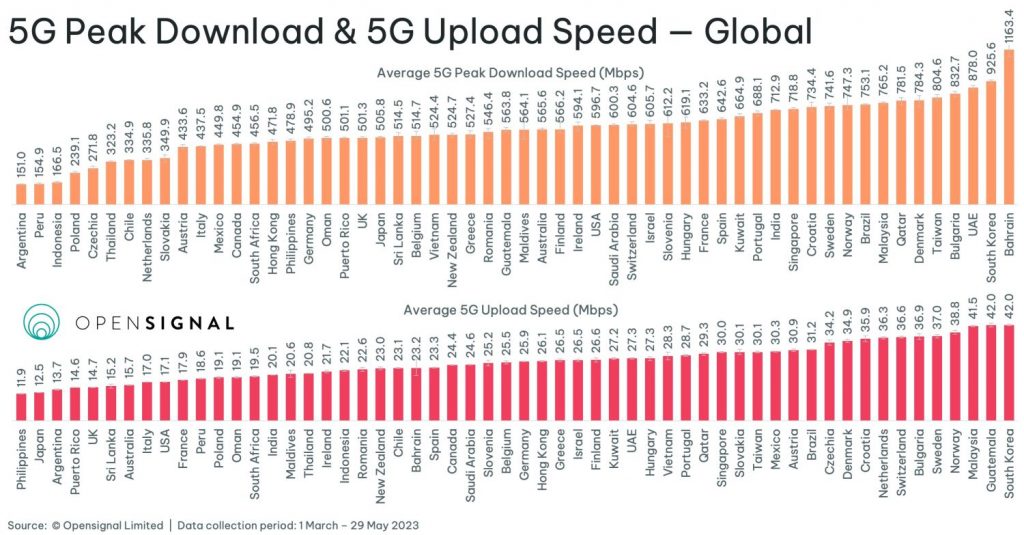
In terms of peak download speed, Malaysia recorded 880.3Mbps in 2022 and it declined to 765.2Mbps this year. Despite the drop in download and upload numbers, Malaysia’s 5G network recorded a 14.4x improvement over 4G networks, which is the second highest on Opensignal’s report.
The decline is to be expected as there are currently more telcos and users on the national 5G network. When Opensignal released its 2022 report, YTL Communications’ Yes 5G was the sole telco in Malaysia that provided 5G and it only supported a handful of devices which excluded the iPhone.
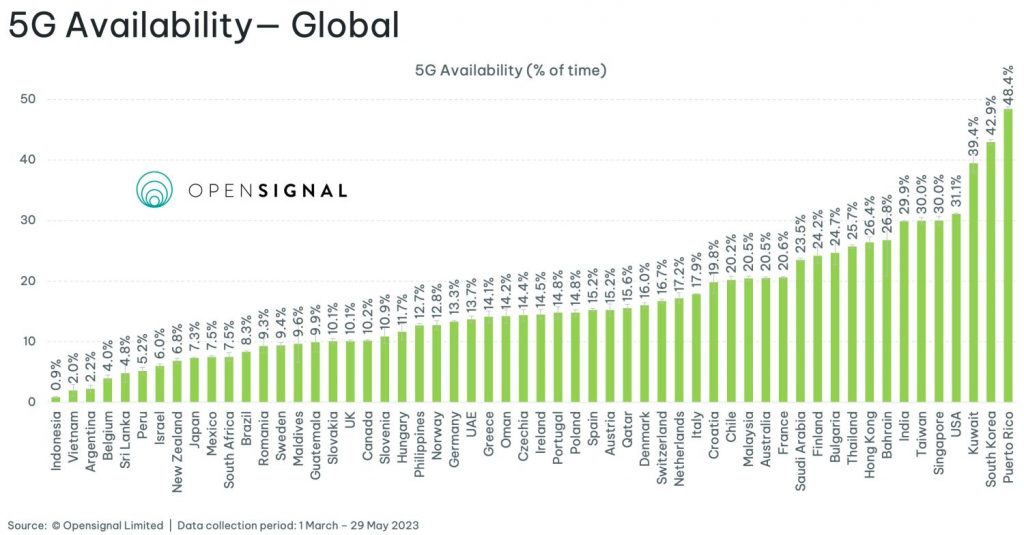
In terms of 5G availability, Malaysia is ranked #16 at 20.5%, which is ahead of developed nations such as Germany, Spain, Denmark and Italy, but it is still behind Thailand, Hong Kong, Taiwan, Singapore, USA and South Korea. It is worth highlighting that 5G availability is a measure of how much time a device is connected to a 5G network and it does not reflect actual 5G coverage.
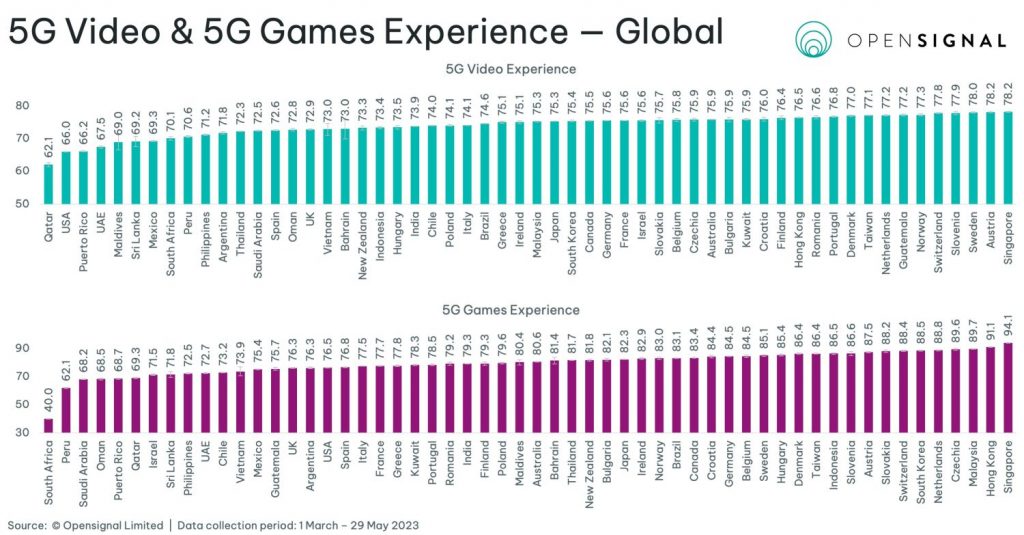
Besides speed, Opensignal also measured the mobile experience of video and gaming. Malaysia is ranked #3 for 5G gaming experience with 89.7 points, however, it lags when it comes to video experience at #28 with 75.3 points.
You can check out Opensignal’s 5G global experience report here.
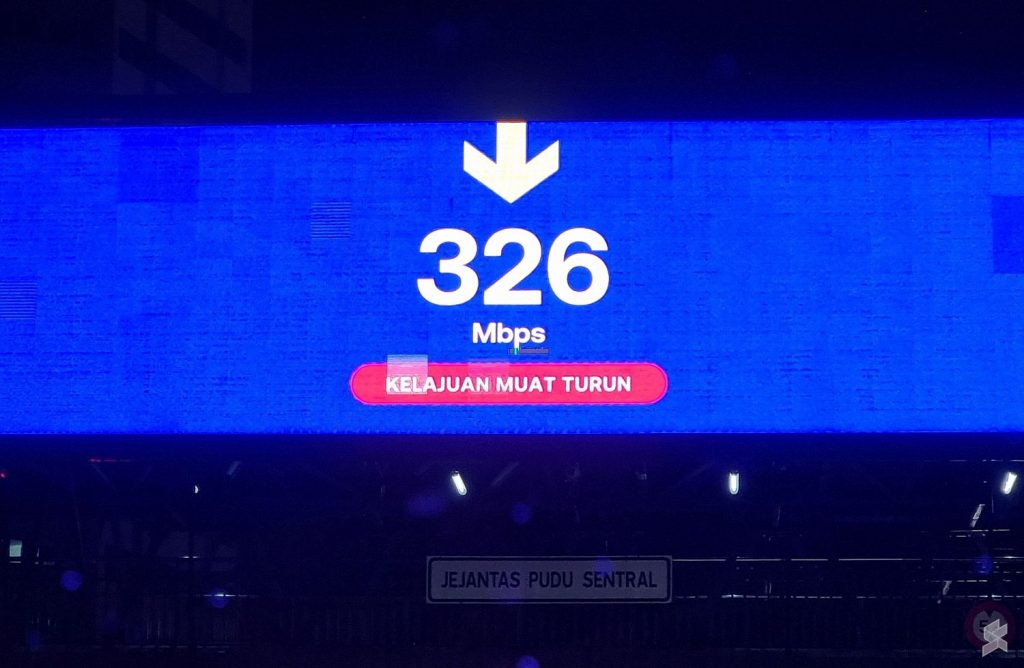
The reported average speeds by Opensignal are close to what DNB has been advertising on their digital billboards. As captured recently, the 5G network is doing an average download speed of 326Mbps which is still above its promised minimum 100Mbps download speed at the cell edge of the network.
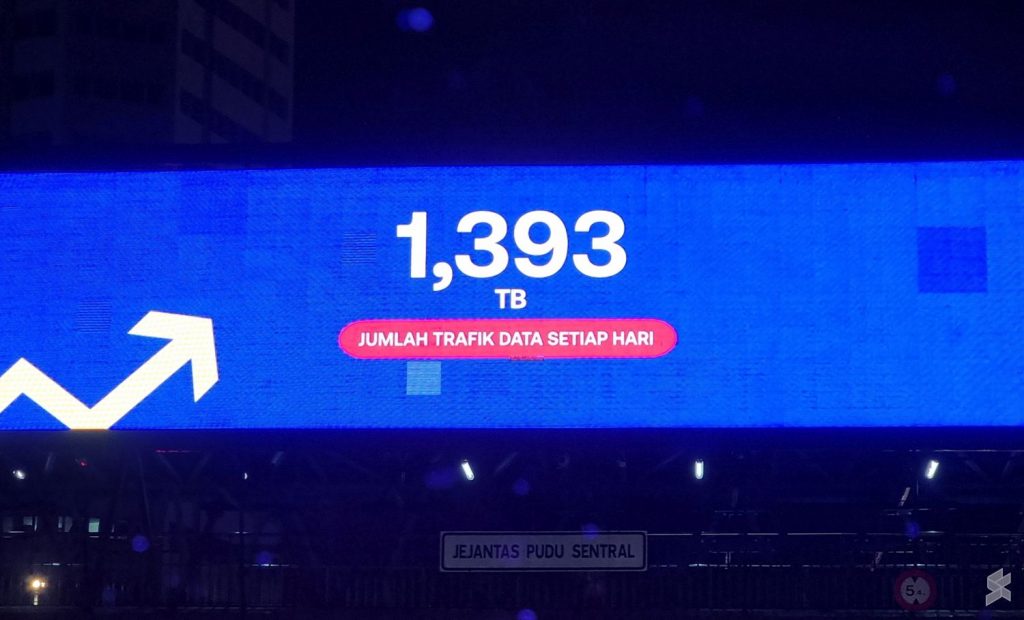
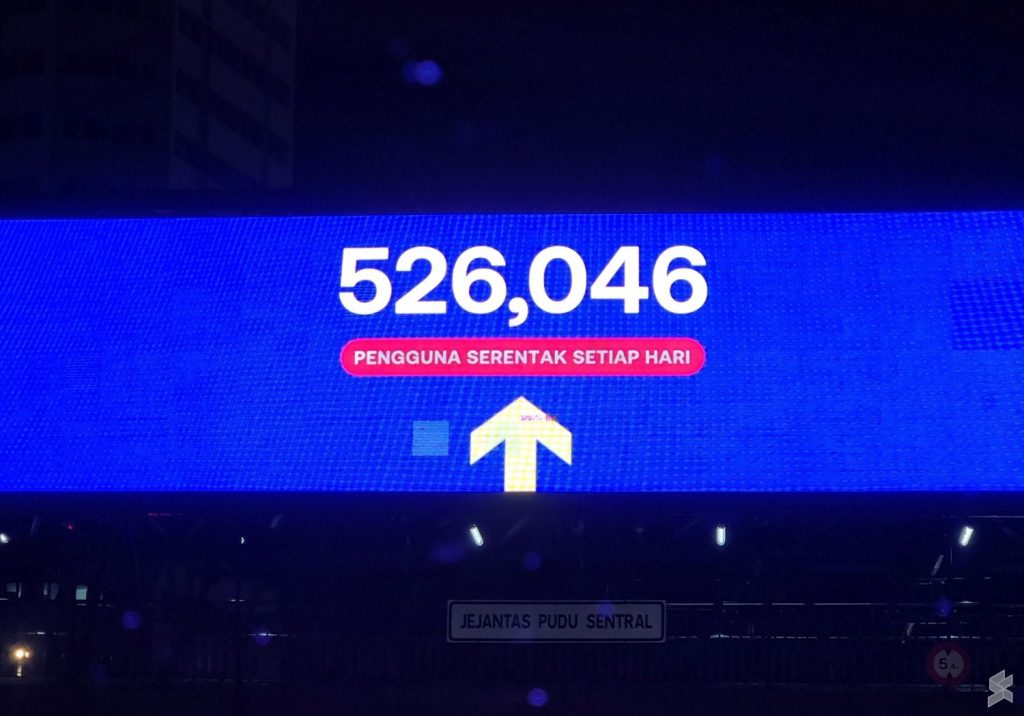
The 5G network has recorded close to 1.4 petabytes of daily traffic, however, the number of concurrent users reported is still hovering slightly above 500,000. DNB’s 5G network is claimed to have reached 62.1% population coverage last month and it has been mandated to achieve 80% by the end of this year. While DNB claims to have high population coverage in urban areas, especially in the Klang Valley, there’s still a lack of 5G in-building coverage for major shopping malls and office buildings.
Despite the high coverage figures, the 5G adoption rate still remains low and there’s no clear visibility of enterprise participation. As shared by the MCMC during the last JENDELA update, Malaysia’s 5G adoption rate stood at just 3.1%. As announced in May, Malaysia will be transitioning from a Single Wholesale Network model to a dual-network approach starting next year. With less than six months to go, there’s still a lack of clarity on the two 5G entities and how DNB will be privatised.
Communications and Digital Minister Fahmi Fadzil said there was supposed to be good news related to 5G by the end of last month but he hasn’t provided any updates at the time of writing.

